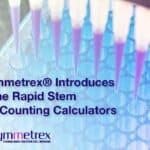The usual commentary on private U.S. clinics currently evaluating new stem cell treatments is stereotypically negative, with accusations of peddling exploitive and dangerous therapies. However, a recently published comment from the Director of Massachusetts stem cell biotechnology company Asymmetrex considers that many of the treatments provided by private stem cell clinics could be as important to progress in stem cell medicine as FDA-authorized clinical trials.
Boston, MA For Immediate Release
In a new early view article published in the online Journal of Stem Cell Research and Medicine, James L. Sherley, M.D., Ph.D., founder and director of Asymmetrex, LLC, asks the question, “Why are patients scared away from private stem cell clinics?” (June 6, 2017). Sherley presents a critical assessment of the warnings pronounced by federal agencies and professional organizations, like the National Institutes of Health (NIH) and the International Society for Stem Cell Research (ISSCR), against private clinics providing stem cell treatments. He argues that new treatments in private clinics are, for the most part, not very different than stem cell treatments in clinical trials authorized by the Food and Drug Administration (FDA).
In his comment, Sherley chides the NIH, ISSCR, and alarmist commentators for portraying private stem cell clinics, as a group, as unethical, and even dangerous to patients, without good evidence to support their claims. He provides examples to show that many operational elements of stem cell treatments in private clinics are not unlike FDA-authorized clinical trials. Both stem cell treatment settings have strengths and weaknesses. Sherley’s position is that, “In their missions to serve patients, the NIH’s and ISSCR’s efforts would seem to be better spent informing patients how to obtain the best care in either setting.” In earlier writings and presentations, he has also urged decision-makers to develop policies for collecting, organizing, and studying stem cell treatment data from private clinics. Since the number of patients treated in private clinics is now estimated to far exceed the number in clinical trials, Sherley has argued that excluding this valuable experience by vilifying it is a tragic loss to stem cell medical research and patients.
A crucial way in which FDA-authorized clinical trials and private stem cell treatment clinics are not different is their past lack of a means to determine the dose and quality of stem cell treatments. In his published comment, Sherley notes that none of the anti-private clinic alarmists acknowledges this deficiency that also impacts the worth of stem cell clinical trials. In fact, this need even limits the quality of some approved stem cell therapies like umbilical cord blood stem cell transplant.
Asymmetrex has recently developed a technological solution for the half century-old problem of specifically counting tissue stem cells. With the company’s new technology, it is now possible to determine the dose and quality of therapeutic tissue stem cell preparations. Asymmetrex is positioned to become the certifying agency for the dose and quality of tissue stem cells used in approved treatments and either FDA-authorized clinical trials or private stem cell clinic treatments. Sherley predicts that adoption of this shared certification process will promote a more reasoned assessment of the contributions that private stem cell clinics are and can make to accelerating progress in stem cell medicine.






Leave a Reply